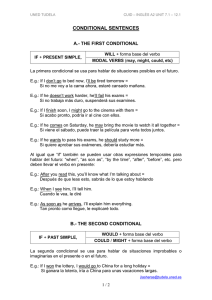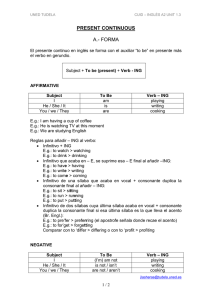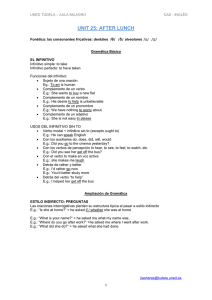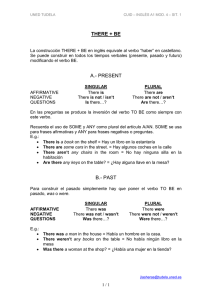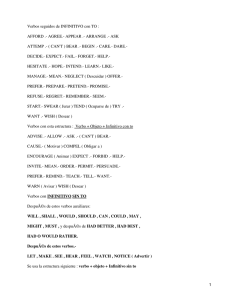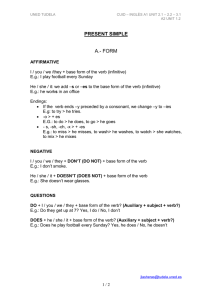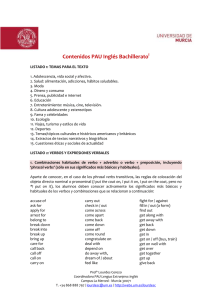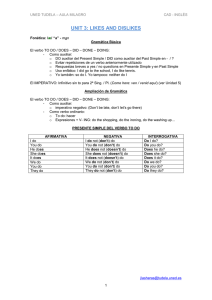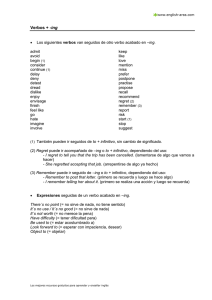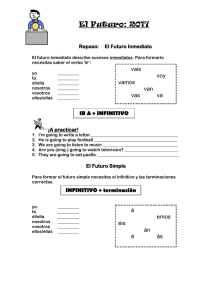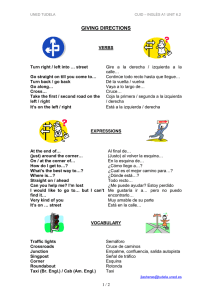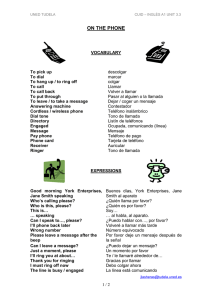(be) going to - Horarios de los centros asociados de la uned
Anuncio
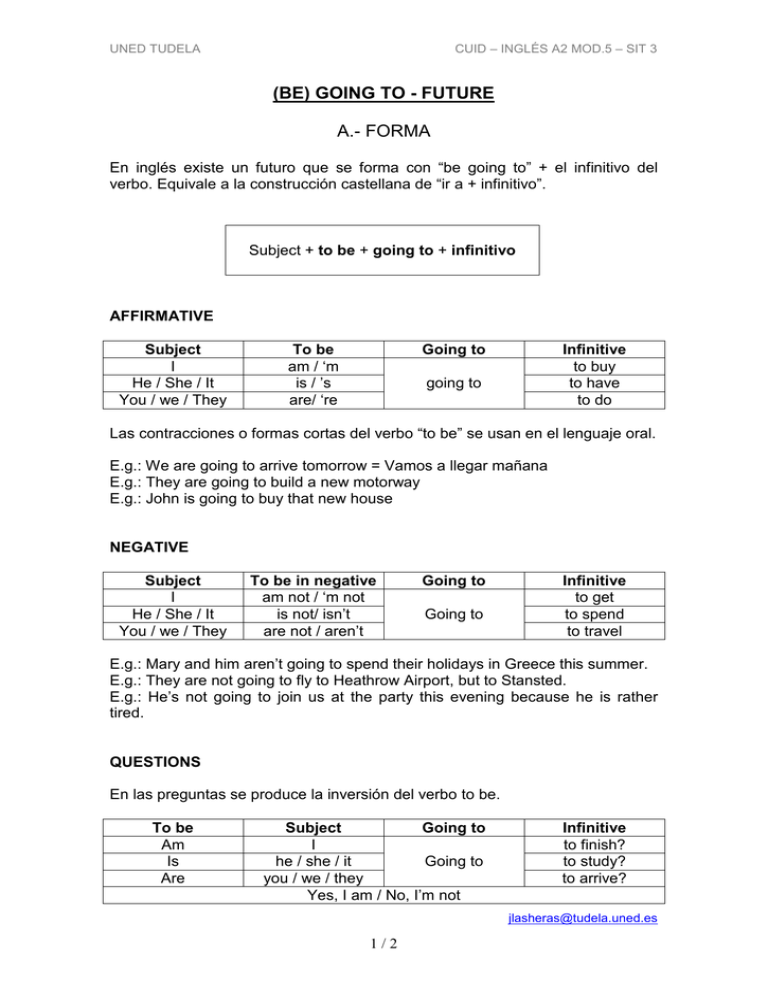
UNED TUDELA CUID – INGLÉS A2 MOD.5 – SIT 3 (BE) GOING TO - FUTURE A.- FORMA En inglés existe un futuro que se forma con “be going to” + el infinitivo del verbo. Equivale a la construcción castellana de “ir a + infinitivo”. Subject + to be + going to + infinitivo AFFIRMATIVE Subject I He / She / It You / we / They To be am / ‘m is / ’s are/ ‘re Going to Infinitive to buy to have to do going to Las contracciones o formas cortas del verbo “to be” se usan en el lenguaje oral. E.g.: We are going to arrive tomorrow = Vamos a llegar mañana E.g.: They are going to build a new motorway E.g.: John is going to buy that new house NEGATIVE Subject I He / She / It You / we / They To be in negative am not / ‘m not is not/ isn’t are not / aren’t Going to Going to Infinitive to get to spend to travel E.g.: Mary and him aren’t going to spend their holidays in Greece this summer. E.g.: They are not going to fly to Heathrow Airport, but to Stansted. E.g.: He’s not going to join us at the party this evening because he is rather tired. QUESTIONS En las preguntas se produce la inversión del verbo to be. To be Am Is Are Subject Going to I he / she / it Going to you / we / they Yes, I am / No, I’m not Infinitive to finish? to study? to arrive? [email protected] 1/2 UNED TUDELA CUID – INGLÉS A2 MOD.5 – SIT 3 Yes, he is / No, he isn’t Yes you are / No, you aren’t E.g.: What are you going to do next year? E.g.: Is William going to work in the new project? E.g.: Are they going to get married this summer? B.- USO • Se utiliza para planes o intenciones futuras. E.g.: They are going to arrive tomorrow = plan futuro E.g.: I’m going to practise the piano for two hours this evening = intención futura En este caso coincide con el uso del Present Continuous cuando se utilice para referir a actividades planeadas en el futuro. E.g.: I’m having dinner with Janet tomorrow evening (Pres. Cont.) = I’m going to have dinner with Janet tomorrow evening Hay que tener en cuenta que si se realiza un plan en el momento justo de hablar de manera repentina, se prefiere el uso de WILL más que el de “be going to” E.g.: We are really lost. I’ll stop and ask someone the way. • Se utiliza para formulas predicciones. E.g.: Oh, look at the sky! It’s going to rain. E.g.: Look at that car, it’s going to have an accident! E.g.: Don’t worry, they aren’t going to get angry with you. NOTA: Aunque “be going to” puede usarse con los verbos “go” y “come”, se prefiere el Present Continuous con estos verbos por razones de estilo. Se intenta evitar el uso de “be going to” con esos dos verbos. E.g.: I’m going / coming home early this evening = Present Continuous. [email protected] 2/2
